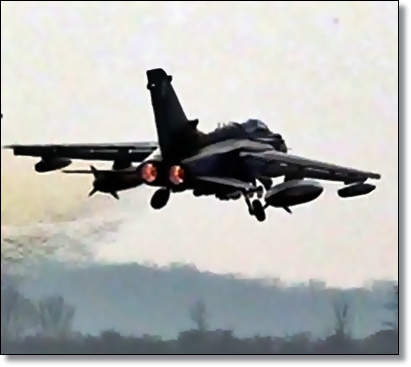Libya: The Irony of Democracy

 |
| "Bombing democracy" Photo courtesy |
But after war broke and the true face of the Opposition and the West surfaced, I changed my mind.Coupled with all signs of regime changes, I found myself standing by Gadaffi - not because I get some handouts from him, like African rulers.
Justice demands that we ask why Gadaffi is more demonized and dealt with than other dictators in Africa and Middle East. Is there any democracy in Saudi Arabia, Kuwait, Bahrain and elsewhere? Those who still remember how the US toppled Iraqi’s strongman Saddam Hussein by means and strength of lies and fabrications will agree with me that what is going on in Libya is illegal and dangerous. Yes it is. Refer to the instability the Middle East has since experienced after the toppling of Saddam.
The US allegedly spent more than a trillion dollars to destroy Iraq. Had this money been invested in human development and construction or poverty reduction, how much stability would it usher in?
True, I like democracy. But looking at what is going on in Libya where NATO is pounding Gadaffi and his army, I doubt if this is the mode of democracy the West is introducing in Africa. I still view it as neo-colonialism so to speak. Something needs to be done. Who will confront the West whilst the African Union is in a deep slumber? The African Union has not said anything. It has not even been consulted as if these bombings are not carried out on its soil! Instead, the Arab League was consulted! What a double standard! Is this democracy?
More often than not, the West is trying to make the whole world believe that it is supporting “changes”in Libya. The world “changes” is ambiguous. Which type of changes? For who? By whom? What rationale is the West using to decline to allow negotiations and elections in Libya?
History is a good teacher-cum witness. In invading and destroying Iraq, the US used the term “terrorism.” It went a mile ahead by fabricating and defining the same for its interests. But after the whole charade went awry, the US came with many excuses. Should we wait to see the same in Libya?
Sadly though, much money that would be spent on elections is spent on unnecessary war. A common man or woman in a Libya street is suffering a lot. The man they want to topple, at least, did something to construct the country they are destroying. While they are bombing and destroying Libya, there are no plans on the table for its construction after the war.
NATO came into Libya under the pretext of protecting civilians from being butchered by Gadaffi’s army, but civilians are still dying. And if the aim is to cement democracy, why then aim at toppling the government in lieu of forcing it to embark on democratic transformation through elections? Is it wrong to contend that West is using the Libyan uprising to settle its scores?
If Gadaffi were nicely and judiciously approached either to convene elections or usher in some changes, he’d have agreed. Refer to how he agreed to abandon nuclear programs. Though Gadaffi has been in power for long, again, it is still Libyans’ rights to dispose him shall they deem fit but not the West. Those who know the geopolitics and logistical reality of the desert are aware of the fact that it is difficult to easily dislodge Gadaffi by air raids and bombings. This means. The war will drag for a long time whilst the loss, so too, swell.
If the aim is to get rid of autocratic regimes in the world, there are still many that are in bed with the West. Gadaffi is better than many thievish African and Middle East dictators. This can be seen on the infrastructure in Libya and life standard. Libyans are not demonstrating for bread or hardship but need of democracy. What is the situation south of Libya?
By Nkwazi Mhango
The author is a Canadian based Tanzanian and author of Saa Ya Ukombozi.
